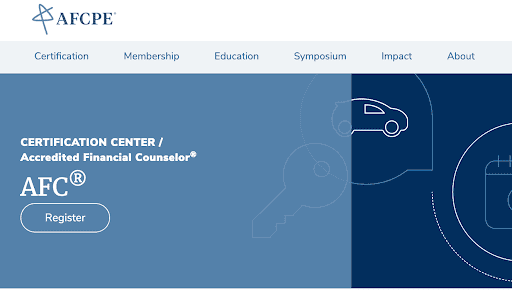If you have a knack for managing money and a passion for helping others, financial coaching could be the perfect career for you.
Getting certified is a great way to stand out in this growing field and build trust with potential clients. While not mandatory, the right certification can provide you with widely recognized credentials and the tools to effectively guide clients toward their financial goals.
Let’s explore some finance coach certification options you can take to advance your career.
What Certification Do I Need to Become a Financial Coach?

Here are some financial coach certification programs you can consider for your professional development:
- Accredited Financial Counselor (AFC®): Ideal for coaches who want to focus on financial literacy and helping clients with budgeting, debt management, categorisation in digital banking, and savings strategies. A key part of this is organizing a client’s income, where accurate pay stubs are essential.
- Certified Financial Planner (CFP®): Best for comprehensive financial planning, including investments and retirement strategies.
- Accredited Personal Finance Coach (APFC®): Focused on behavioral finance and coaching techniques to help clients change their money habits.
- Certified Financial Education Instructor (CFEI)®: Designed for professionals who want to deliver financial education workshops and courses for groups.
- Certified Money Coach (CMC)®: For coaches who want to combine financial guidance with emotional intelligence to help clients overcome deep-rooted money habits.
Each of these certification options equips you with practical skills to serve clients. Choose the one that best aligns with your target market and the financial coaching services you plan to offer.
In addition to formal certifications, there are other training alternatives run by successful financial coaches, like Dave Ramsey’s Financial Coach Master Training. These programs typically focus on practical coaching skills and the instructor’s frameworks rather than comprehensive financial planning.
Keep in mind that financial counseling and coaching are different from financial planning in several countries, including the US. The requirements for financial advisors may be tied to a license, depending on your location.
Can You Become a Financial Coach Without Certification?
Yes, you can start your career as a financial coach (or financial fitness coach) without formal credentials. Certification is simply a tool to boost your expertise and earn designations like AFC®, CFP®, or FFC®.
Beyond training and credentials, certification programs also offer helpful resources and connections to build your career as a financial coach.
If you don’t have a background in financial literacy and planning or one of the above credentials, getting clients might be tough. The financial world is complex, and potential clients want to feel safe in your hands.
Real-world experience is valuable but structured learning provides a more comprehensive understanding that’s hard to match.
Certifications can prepare financial coaches to deal with complex financial challenges, from personal finance to debt management and retirement planning. On the other hand, the lack of proper training may lead to inadvertently giving out inaccurate advice.
Think of the consequences of that. Misguided coaching could literally ruin someone’s entire life, and that’s not being dramatic.
Though Dave Ramsey’s journey is publicized as a rare rags-to-riches story, he started out as an entrepreneur while studying finance and real estate at university.
After that, he started coaching people on their finances and eventually, decades later, he turned his method into a certification program.
Things could have gone south if he didn’t know what he was doing.
You can gain the essential skills and qualifications for financial coaching through various ways, like academic education, job experience, or professional training. The important thing is that you have the right frameworks and knowledge to confidently guide clients on their financial decisions.
How to Position Yourself as a Financial Coach
The more specialized you are, the easier it is to market your financial services—and the better you can help your clients. Here are a few ways to define your focus.
- Identify areas within finance that genuinely interest you: Choose a niche aligned with your passion.
- Reflect on your skills and expertise: What financial topics are you well-versed in?
- Research current trends in financial coaching: Look for gaps or underserved areas where you can offer unique value.
- Study other financial coaches and their niches: Identify what they offer and where there might be opportunities for differentiation.
- Build a target audience profile: Determine the demographics and characteristics of your ideal client (e.g., age, income level, financial goals, and challenges).
- Pilot your niche: Start with a small group of clients or offer workshops within your chosen niche to gauge interest and gather feedback.
- Research your market: Tailor your niche to address specific pain points or challenges your target audience is facing.
Here are a few examples of financial coaching niches you can specialize in:
- Helping young adults manage student loan debt
- Working with artists to develop better money management techniques
- Guiding aspiring entrepreneurs on business budgeting and financial planning
- Educating first-time property buyers on real estate investment opportunities and risks
- Helping new parents save for their children’s education and future expenses
- Guiding couples through the financial aspect of their divorce proceedings
- Working with senior citizens to plan ahead for their retirement years and achieve sustained financial stability
Pick the specialization that best aligns with both your expertise and current market needs.
Financial Coach Certification FAQ
What Certification Do I Need to Become a Financial Coach?
You don’t necessarily need to be certified to become a financial coach, but it can help you acquire the necessary knowledge to start a coaching practice in this niche. Earning credentials like Accredited Financial Counselor (AFC®) or Certified Financial Planner (CFP®) can help boost your credibility in the field.
Can You Become a Financial Coach Without Certification?
Yes, but having recognized credentials as a certified financial coach like AFC®, CFP®, or FFC® enhances your credibility and can attract more clients.
You’ll also gain crucial skills to guide clients on money management. Remember: Being good with money and knowing how to coach clients on their finances are not the same thing.
How Much Does It Cost to Become a Dave Ramsey Financial Coach?
Dave Ramsey’s Master Training program currently costs $2,495, which includes training materials, live lectures, and a certificate of completion.
How Much Does It Cost to Become a Financial Coach?
The cost of becoming a financial coach varies based on the certification program you choose and how much you invest in setting up your business.
Certification programs typically range from $500 to $5,000. Additional costs may include marketing, insurance, and renting an office space.
Financial Coach Salaries: How Much Do Financial Coaches Make?
According to Glassdoor, financial coaches make an average of $86,000-$149,000 per year in the US. Your income may differ from this as a self-employed coach, depending on how much you charge for your coaching sessions and packages, how many clients you have, and what additional products you sell.
Put Your Knowledge Into Action
Certification is an important step, but practical experience is what truly shapes a successful financial coach.
Start by offering a few free sessions or practicing with a peer coach. This will help you gain confidence in applying the frameworks you’ve learned and navigating real client challenges.
Make sure you stay informed about changes in the financial sector. Refine your coaching approach continuously by learning from seasoned professionals and adopting best practices in the financial coaching industry.
As you grow your practice, managing the administrative side can become overwhelming—but it doesn’t have to be. With Paperbell, you can automate your scheduling, payments, website, client communication, and more on a simple client management platform.
Claim your free account today and see how Paperbell makes running your financial coaching business a breeze!
Editor’s Note: This post was originally published in September 2023 and has since been updated for accuracy.









